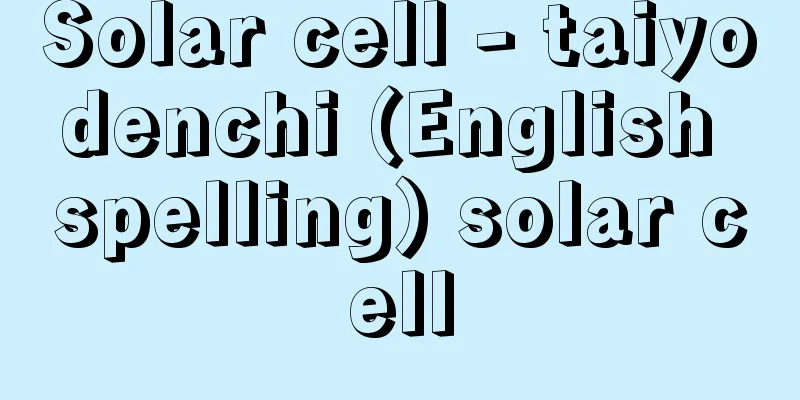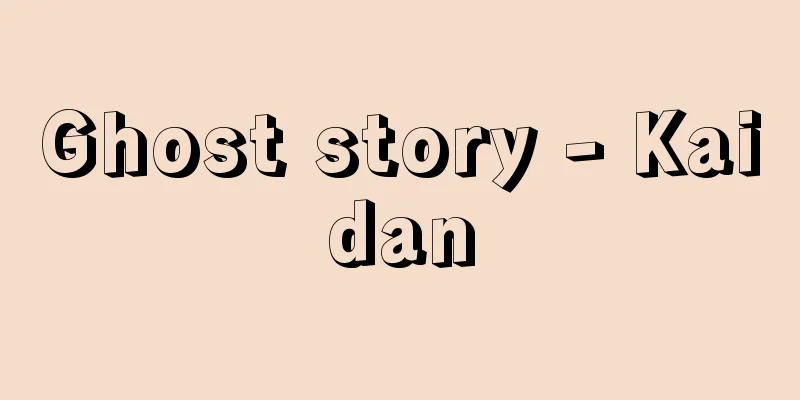Eternal Now - Eternal Now

|
...In this theory, both the future and the past are considered to be temporal states that are conceived incidentally to the present. This idea appears in a refined form in the West as Nietzsche's concept of the eternal now, ewiges Jetzt, but if we consider Nietzsche's concept in terms of the influence of Indian Buddhism, it is also characteristic of India. *Some of the terminology that refers to the "eternal now" is listed below. Source | Heibonsha World Encyclopedia 2nd Edition | Information |
|
…そこでは未来も過去も,ともに現在のために付随的に考えられた時間態であると考えられる。こうした発想は,洗練された形では西欧にもニーチェの〈永遠の今ewiges Jetzt〉というような概念として登場するが,ニーチェのそれもインド仏教の影響という点から考えられるとすれば,やはりインドに特徴的である。 ※「永遠の今」について言及している用語解説の一部を掲載しています。 出典|株式会社平凡社世界大百科事典 第2版について | 情報 |
<<: Eternal Rome - Eien no Roma
>>: 《Eternal Prologue》 - Eternal Prologue
Recommend
Magna Graecia (English spelling)
A Latin name referring to all the ancient Greek co...
Qawām al‐Salṭaneh
1847‐1960 Iranian politician. He played an active ...
Kashihara [city] - Kashihara
A city in the southern part of the Nara Basin in N...
Women's Sumo - Onnazumo
A spectacle in which women wrestle. It was first ...
Conchae nasales (English spelling) Conchaenasales
…The wall that separates the left and right nasal...
Calamostatis - Calamostatis
… The stems, leaves, and reproductive organs are ...
Parotid gland
…Depending on their location, they are called lab...
Ryumon Sodo - Ryumon Sodo
A peasant uprising to demand a reduction in taxes ...
Kyukosai Soza
…When Harutomi, the head of the Kishu Tokugawa fa...
Hisashi Inoue - Hisashi Inoue
A TV writer, a playwright, and a novelist. His re...
Taisho calendar (English spelling)
This calendar system was implemented in China in t...
Sukunahikona no Mikoto - Sukunahikona no Mikoto
Also known as Sukunabikone, Sukunamikami, and Suk...
Sefid Rud (English spelling)
...It is a narrow plain between the Elburz Mounta...
Karroo system
A geological formation consisting mainly of contin...
Anchitherium
…However, the Mesohippus of the next Oligocene ha...









